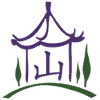[et_pb_section fb_built=”1″ _builder_version=”3.0.47″][et_pb_row _builder_version=”3.0.48″ background_size=”initial” background_position=”top_left” background_repeat=”repeat”][et_pb_column type=”4_4″ _builder_version=”3.0.47″ parallax=”off” parallax_method=”on”][et_pb_text _builder_version=”3.19.6″ background_size=”initial” background_position=”top_left” background_repeat=”repeat”]
It’s winter in Wisconsin. The nights are long, and the days are cold. With the glow of the holidays past, we hunker down for the deep freeze and think warm thoughts of lush gardens and summer days at the beach.
The cold can give rise to stagnancy. We socialize less, aren’t as active, and have the tendency to eat more out of boredom. Many also experience a letdown after the holiday season as the excitement abruptly ends and we return to our normal routine.

For some, the winter can seem downright oppressive. The lack of sunshine and fresh air can influence our mood and well-being. Seasonal affective disorder (SAD) has been identified as the melancholic state that arises with the long winter months.
A deficiency of vitamin D normally obtained from summer sun has been suggested as a contributing factor of SAD. Although vitamin D supplementation may be warranted (contingent upon bloodwork), there is much more to the story that Chinese medicine can elucidate.
Winter belongs to the Water element in traditional Chinese medicine. Like a deep, dark ocean, the Water element and the winter season should be a time of stillness, introspection, and restoration of the body and mind.
From this perspective, the busyness and stress of the holidays are antithetical to the energy of winter and the Water element. Chinese culture has long recognized this, celebrating the harvest festival in autumn and then going inward until the first signs of spring that arrive with the Chinese Lunar New Year.
The dying away of autumn is nature’s signal to settle down, if not hibernate or go dormant like some species. The land rests, as should we, eating warming foods and sleeping more. As the first energy of spring waxes in late winter and the days lengthen, the Chinese gather with family and friends and celebrate new beginnings.
There is a wisdom to this rhythm that we have lost in the Western world by not taking the time to sleep more, dream more, and provide time for quiet reflection. This imbalance with nature gives rise to the inner conflict that is SAD.
In partial recognition of this imbalance, an entire market has arisen, proffering sunlamps as a quick-fix solution to the winter blues. These lamps can be helpful, providing a bright source of physical light, but they alone cannot guarantee the inner movement of light and warmth.
Our ancestors passed down a much better solution that is as practical as it is healing. Firelight has warmed and enlightened our hearths, homes, and hearts for millennia. We tell stories around firelight; glimpse our future in mesmerizing, flickering flames; and warm our bones cold from being outdoors.

For those who do not have a fireplace in their home, candlelight is a welcome substitute. Sharing a meal around candlelight can stimulate an inner warmth on the darkest winter night. Meditating while gazing upon a single lit candle can instill an inner calm, providing an opportunity for quiet introspection that does not happen while eating a rushed breakfast in front of a sunlamp before going to work.
Begin within. If you suffer from SAD, look to the wisdom of nature and gently invite the warmth and light of the Fire element to bring balance to the cold and dark within. Find time for stillness in winter, and you will be rewarded with renewed vigor in spring.
[/et_pb_text][et_pb_text admin_label=”Text” _builder_version=”3.19.2″ header_font=”||||||||” background_color=”#d6d6d6″ border_radii=”on|1px|1px|1px|1px” border_width_all=”1px” border_color_all=”#255b39″ global_module=”2364″]
Author: Brandon LaGreca, LAc
Link to bio page.[/et_pb_text][/et_pb_column][/et_pb_row][/et_pb_section]
